– By Heath Brown
Many of us became passenger seat coaches during the Commonwealth Games gold medal match, as coach Lisa Alexander put herself in the firing line for throwing up the bibs at half-time and three-quarter time.
Alexander scrambled to find a successful combination in what was the first real test her team had faced in the entire tournament. After all, she’s only human!
Ultimately, making changes is always a roll of the dice, and we are bound to be villains more often than heroes as coaches. To cut Alexander some slack, I think she was most likely damned if she did, and damned if she didn’t after a rampaging England showed more grit, guts and gusto than the girls in green and gold.
400+ DRILLS: JOIN NOW TO ACCESS OUR FULL LIBRARY OF DRILL VIDEOS
That said, let’s examine 10 points coaches should consider when making changes, and compare this against the gold medal game to see how else things could have played out.
1. Play Your Seven
One common thread I find in the dominant teams in any level of competition is not only the strength of the starting seven, but the way they are played into form as a unit through their coach sticking to that seven in critical matches. Alexander subscribed to this mantra for many years, but seemed to evolve her approach this tournament. Were the half-time wholesale changes, or abrupt third-quarter changes the beginning of the end in this match?
2. Expect an Error or Three
It begs mentioning that most coaches understand there will be a few Xs on the stat sheets when introducing a fresh player into the game – a misfeed from a middie, a bad pass from a transition defender or a missed shot from a goaler when they’re shooting ‘cold’. Whilst the game was riddled with errors from start to finish, would the Diamonds have produced less errors with less changes after weathering the early storm of the Roses and settling into a rhythm?
3. Avoid knee-jerks or panic stations
This is certainly my achilles heal as a coach – two minutes into the game your shooter has missed or a midcourter has sprayed a feed and you’re already making eye contact with your bench, selecting their replacement. My antidote? Always making sure there is a cool head and even polar opposite to me on the bench – someone who prefers stability even when things aren’t going well. It’s all about psychological safety, and players knowing they won’t be benched at the first or second mistake they make. I know the current coach I work with would’ve sat next to Lisa at halftime and whispered “they’re building, let them play it out!”.
4. Everybody is an impact player
Many coaches label certain players as “impact players”, when in reality everyone should be able to swing between impact player and starting player. The basic difference here is mindset and the instruction coaches should give the two – an impact player comes on with a specific instruction on how to change up structures and strategies, whereas starters work into a game using an established game plan. With all the movements in the gold medal match, did the change-ups have a true impact?
5. Experienced Heads
This one is simpler – having enough experienced players on court in crucial games to balance the blooding of youth or graduating players not yet fully established at that level of netball. At the money end of the game, did we have the experience in our defensive end to soak up the pressure of that last minute? This is the part I have the strongest opinion on: Laura Geitz should have been on in the last quarter as she knew what it would take to win the gold medal.
6. The right army
Looking upstream to before game day, and selecting your lineup not just based on form or talent, but diversity of skills compared to other players. Although there were reasons Sharni Layton didn’t make the squad, was she the impact player they needed to disrupt the Roses’ flow? Would Nat Medhurst have been the extra maze-runner the front-court needed to bust open the brutal Roses defence?
7. Know the stage
When is the time to make wholesale changes, try new combinations or test player impacts? Common sense would say “not in finals”, so how do we ‘stress test’ players to see their performance under finals-like duress? You can have a lot of fun with finals scenario simulations at training, or in round games where there is headroom to do this. Although the Diamonds successfully rotated line ups in halves with success through the rounds when they were totally dominating, was it the right stage to do this in the gold medal match with the score so tight?
8. Playing favourites
Whether we admit it or not, we all have an unconscious slant toward players we are emotionally invested in. The player who we’ve had for season upon season, the little Aussie battler, the star on the rise everyone is talking about, a friend’s daughter – someone you have a vested interest or off-court connection with as an individual that rises above the team. Or someone you are getting pressure to play from all and sundry (i.e. a higher level coach). This is like putting blinkers on you as a coach, where you fail to see their negative impact on a game and therefore are unlikely to change them and instead move anyone around them. Was this the case with the Diamonds pre-tournament, when Madi Robinson was bizarrely hurled out after a poor result for all on court, only to be pulled back in after showing them their mistake at selection camp with ripping form that had never actually gone away? Was someone else on that court potentially more or as equal to blame?
9. Beware the phantom shooter
If you want to know the definition of a phantom shooter, think the exact opposite to the then 18-year-old debutant Sharelle McMahon in 1999, fronting up to shoot the buzzer beater to win World Championships gold. Or veteran Jenny Borlase bombing goal after goal after entering the 1999 final to lead a come-from-behind victory. Both came off the bench as swing players. Or Cath Cox in just about every game she played, taking responsibility to go to the post under all sorts of pressure. The fact is, it is easier to see a clutch shooter who wants the ball, and harder to see a phantom shooter who doesn’t. Phantom shooters glide behind the play, do some work out front but avoid the money shots like the plague. The psyche isn’t selfish, it’s in fact the opposite: “I don’t want to stuff this up for my team”. If I was coaching the two final teams, I would be closely re-watching the footage and working with shooters to overcome their phantom tendencies. Even the winners had a shooter who in clutch situations in multiple international finals has missed crucial shots under pressure!
10. Be curious, not self-critical
Reality is, the questions I pose don’t have simple answers, and who knows if if it would have changed the result different decisions were made. The important thing is to ask yourself these questions and develop a view and approach that suits your team, and then test the impact of swinging changes (or not) in different contexts. Always be curious about your decisions when reviewing and not too critical by blaming yourself for losses. Reality is, like in Alexander’s case, 12 athletes and 3 coaches lost the match as one unit and each will take responsibility to learn and grow from it!
Heath Brown is a former Australian men’s team captain and current elite coach, working within the NSW men’s program and women’s state league.
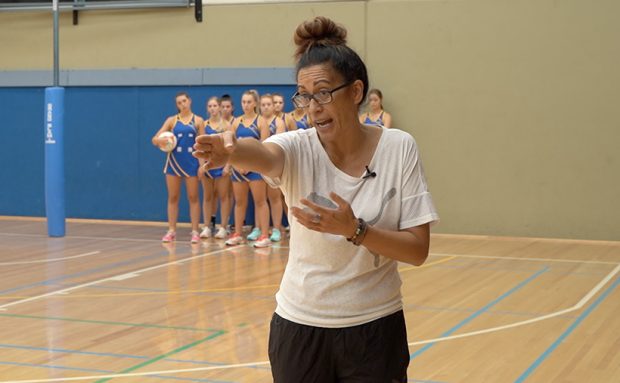

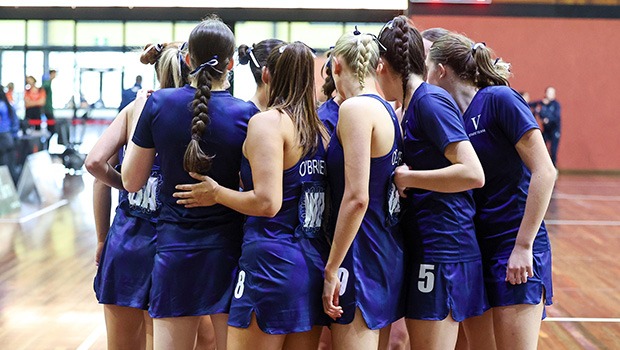
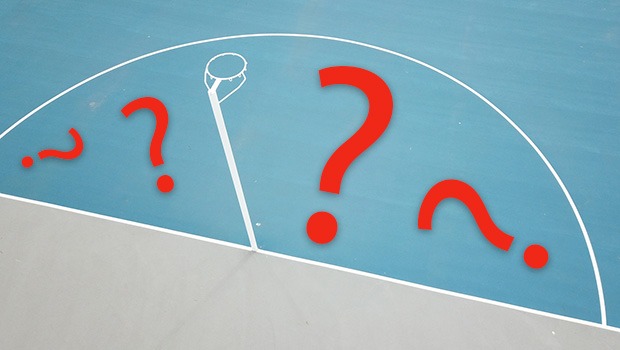
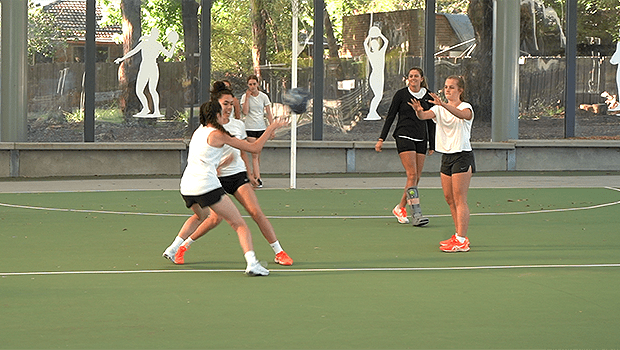
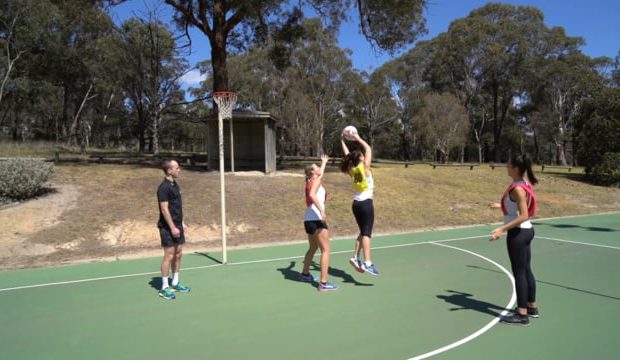
Hi Heath,
Thankyou! Your articles constantly resonate with me. I am enthralled by the way you zero in on controversy and continually offer valuable insight to hot topics. Hats off to you, seriously well written again. Warm regards, Nic
Hi Heath very insightful writing. I couldnt help feeling that you held back on some specific names and criticisms to keep it from getting personal. Frank
I felt the game flowed more smoothly with the new rules on injury time & changes..
I believe Lisa Alexander tried to sit with her 3/4 Q time choices to let them ride it out!
As soon as England made the switch of harden & Housby – that’s when I would have brought Geitz back on! (Really she should have been back in on the 4th Q) I think that’s the biggest mistake really! She’s a proven game winner – always comes up with the turnover when you need it most!
Kim Ravallian looked under pressure, I’d have swapped her in the last Q and had Robinson and Watson to create space in attack.
Everyone can speculate on what could have won the game, but it’s actually a good thing that they lost . You could see the thirst that England had for gold – for Aussies it was just another game.
This loss (which is still silver in a major tournament) will hopefully give the girls the thirst to fight for Gold – not just expect it to come easily!
I certainly will be looking forward to the NWC2019
Hi Heath
This is the first time I have commented on any articles in my life. I felt compelled to compliment you on this great piece of work. As coaches we do have preconceived ideas and thoughts about players and what we feel will work before the game even starts. To some degree that’s our job to ensure we are well prepared and able to out strategise the opposition. My learning from observing the game and changes is that as coaches we must ensure our predetermined thoughts don’t overshadow what is happening on court, and what is required at that particular moment of time. We are human, pressure affects us all and we can only learn to be better next time. Great article once again Heath.
Enjoyed the article. Lots of factors to think about here.
My opinion is that LA thought she truly had a team of 12 who were better than all other nations in any combination. It was a big bet, but with an amazing payoff for the Diamonds if it succeeded. Imagine how long we could dominate world netball for with a team like that! They’d be netball’s Invincibles.
The half time changes were in line with past games I can’t fault them. Neither the opening or half time seven could dominate England the way everyone expected.
The three quarter time changes seemed unusual. Were they panicked or just a secret weapon we hadn’t seen yet? I guess hindsight tells us the former, and this article definitely thinks so. Fair enough!
I’m not a netballer but it seemed obvious to me that the England coach had done her home work and just stopped the Diamonds from dictating the pace of the game by getting in the way of their pattern of fast passing which was quite predictable the more games you watched. The Diamonds were very confident and that played into Englands hands. In any sport no matter how much better the other player or team seems the golden rule is to never give up finding a way to put them under pressure & make them panic. That is the great leveller! There has been a lot of over analysing but lets face it, the Diamonds were great and England just greater on the night that counted and that is all that matters. Just give England the credit they deserve and forget about all the excuses. It was terrific to watch and how wonderful was the result for those girls.
Absolutely brilliant article. Such a great read